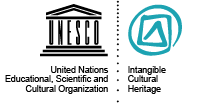Traditional Sohbet meetings
Inscribed in 2010 (5.COM) on the Representative List of the Intangible Cultural Heritage of Humanity
Country(ies): Turkey
Identification
Description

- Traditional Sohbet meetings
- © Information and Documentation Center of Folk Culture/Ministry of Culture and Tourism
Traditional Sohbet meetings play a crucial role in transmitting Turkish folk literature, folk dances and music, village plays as well as societal values. Turkish men meet regularly indoors, especially in winter, to discuss local social and cultural issues, safeguard traditions, and encourage solidarity, mutual respect and a sense of community. Meetings may include music, dances and plays, all enjoyed while consuming local dishes. A traditional Sohbet meeting may last until the early morning. Meetings are open to men above the age of 15 or 16, regardless of ethnicity, religion or status, with the basic requirement that members be of honest families, be trustworthy and respectful of their elders, and not gamble or display public drunkenness. Members may be penalized with a fine for missing a meeting, except under extenuating circumstances. Mothers and wives encourage male members to attend because of the associated social and cultural benefits. Communities usually comprise five to thirty persons and are guided by leaders, appointed by election or proposed by elders. Members of the community all have equal rights and commitments. The Sohbet meetings fulfil an important educational function by transferring ethical values such as social justice, tolerance, benevolence and respect.
Documents
- Nomination form: English|French
- Consent of communities: Turkish/English
Decision 5.COM 6.44
The Committee (…) decides that [this element] satisfies the criteria for inscription on the Representative List of the Intangible Cultural Heritage of Humanity, as follows:
- R.1: Traditional Sohbet meetings are social practices that provide a forum for community members to keep alive their oral traditions, transmit their history and share their cultural values, providing them with a sense of identity and continuity;
- R.2: Inscription of Sohbet meetings on the Representative List could reinforce social cohesion and mutual respect among communities while contributing to broader visibility of intangible cultural heritage;
- R.3: Safeguarding efforts are to be carried out both by the Turkish authorities and the communities concerned, aiming particularly at research and documentation as well as encouraging more frequent Sohbet meetings and providing venues for them;
- R.4: The nomination file was elaborated with the participation of communities and groups through a series of consultative meetings, and it provides evidence of their free, prior and informed consent;
- R.5: Many local varieties of traditional Sohbet meetings are included in the Turkish National Inventory for Intangible Cultural Heritage, established under the aegis of the Ministry of Culture and Tourism.
Slideshow
Video
© 2009 Information and Documentation Center of Folk Culture / Ministry of Culture and Tourism
These videos (and many more) can also be consulted through the UNESCO Archives Multimedia website











